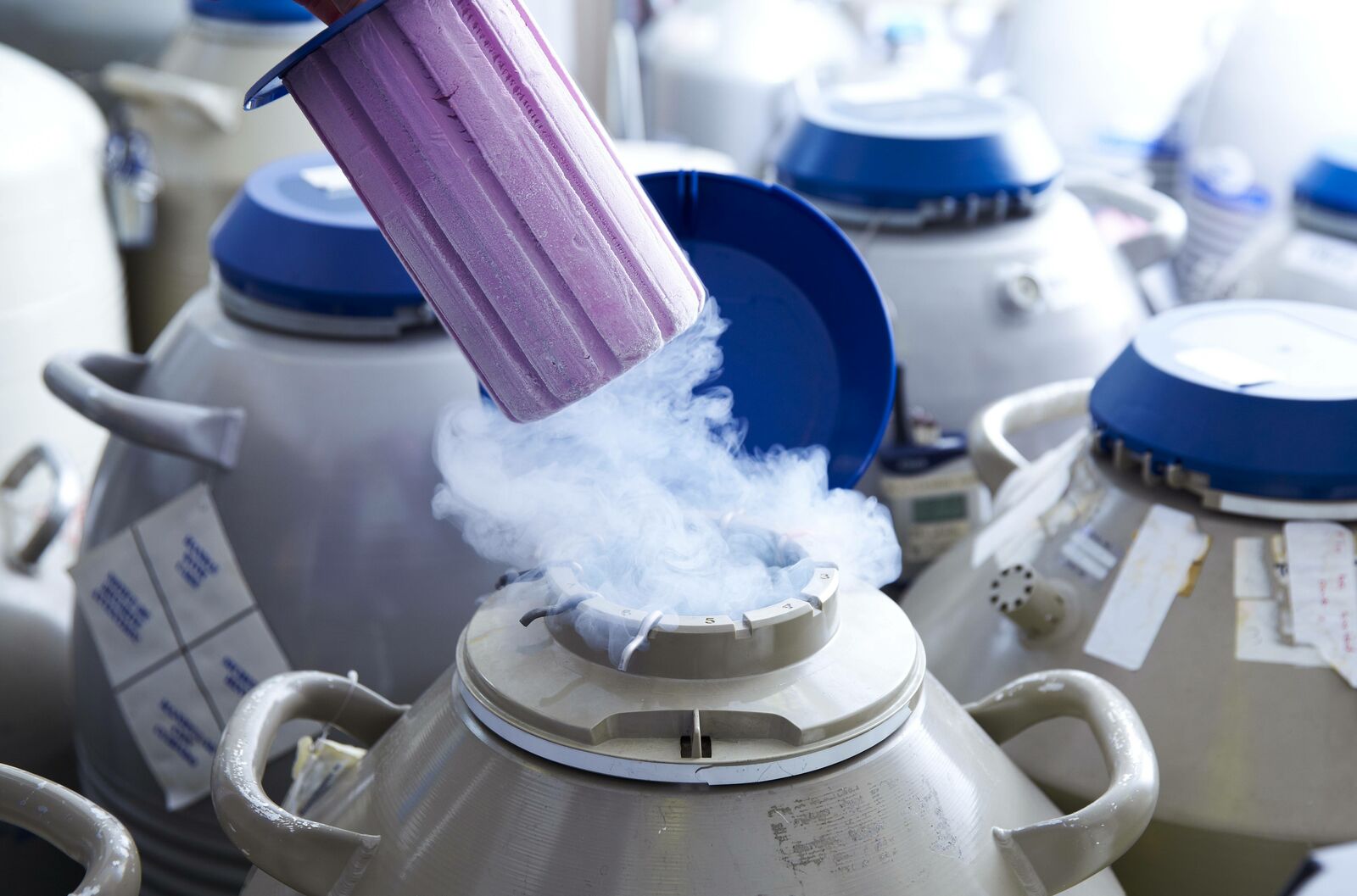
The Egg Freezing Process
What is Egg Freezing?
Egg freezing, or its medical term Oocyte Cryopreservation, lets you preserve your own eggs while they're young and healthy to prevent them from aging as they normally would, and use them in the future if and when you are ready to conceive through in vitro fertilization (IVF).
How Egg Freezing Works
The egg freezing process is a five-step procedure.
Your Heartland physician will discuss with you your goals, what you can expect from the process, and go over your options. You may undergo some testing to assess your current fertility potential such as transvaginal ultrasound and blood work.
Following your first consultation, the physician will recommend a treatment schedule. When you are to freeze your eggs, a member of the care team will start guiding you through the egg freezing process.
Your treatment plan will likely begin with stimulating your ovaries to produce more eggs by taking hormone injections at home.
The stimulation injection phase normally lasts around 10-12 days. During this time you will be required to visit the clinic every few days so we can monitor your response to the injections and adjust treatment if necessary. Once your eggs have matured, you will be given a different medication to release the eggs, starting the ovulation process.
Lasting around 30 minutes, the egg retrieval step is a simple procedure. Eggs are retrieved by inserting an ultrasound probe into the vagina to visualize the follicles, while gently suctioning out the eggs using a thin needle. At the end of the procedure, your physician will let you know how many eggs were retrieved.
You’ll be given pain medication, as well as local anesthesia for the procedure. Soreness can be present afterwards, but most patients resume normal activities the next day.
After the retrieval, your eggs are flash-frozen and stored for future use. Your eggs can remain frozen indefinitely until you decide if you want to try to conceive.
Once you decide to attempt a pregnancy, your eggs will be thawed, fertilized, and you will begin a regular IVF treatment. Visit our Treatments page to learn more about IVF.
If for some reason you and your doctor decide that egg freezing is not right for you, then you might consider other options such as fertilizing your egg and freezing the embryos, or using donor eggs. These options depend on your eggs, your test results, and your life circumstances. Since every person is different, the Heartland team is there to help you decide on the right plan for your journey.
Ready to get
started?
We make it easy to begin. Whether you're interested in IUI, IVF, or fertility testing, our compassionate team is here with expert care and guidance, so you can take your next step with confidence.